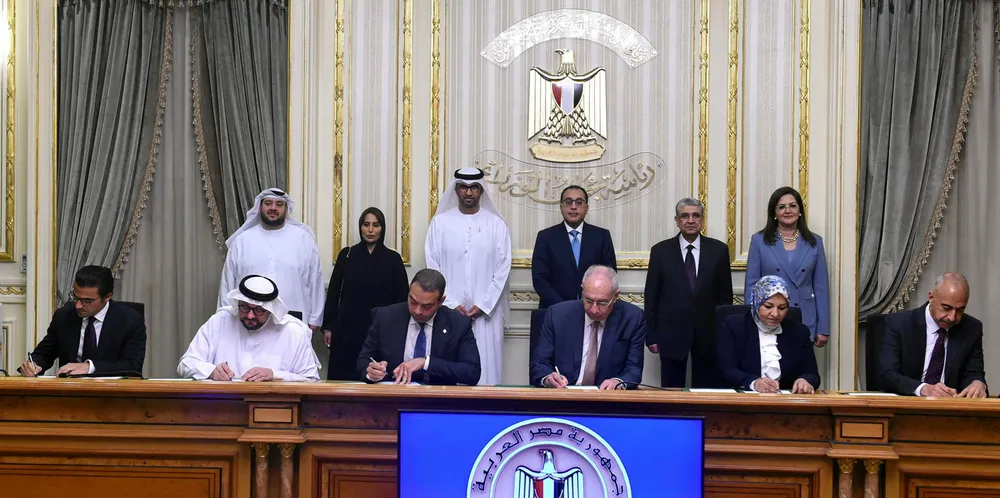Abu Dhabi aims to fuel ships with e-methanol derived from green hydrogen at Suez Canal
State-owned Masdar and Egyptian partner plan to produce 100,000 tonnes of the synthetic fuel by 2026, before scaling up to 4GW of renewable H2 by 2030

“In the first phase of the project, Hassan Allam Utilities and Masdar aim to establish a green hydrogen manufacturing facility, which would be operational by 2026, producing 100,000 tonnes of e-methanol annually for bunkering in the Suez Canal,” explained Amr Allam, CEO of Hassan Allam Holding.
“The electrolyser facilities in the Suez Canal Economic Zone and on the Mediterranean could be extended to up to 4 GW by 2030 to produce 2.3 million tonnes of green ammonia for export as well as supply green hydrogen for local industries.”
Methanol is a liquid at ambient temperature, unlike ammonia and hydrogen, with an energy density of 16MJ per litre — close to the 21-24MJ/l of liquefied natural gas, which is also used as a shipping fuel.
By contrast, liquid ammonia needs to be stored below minus 33°C and has an energy density of 15.6MJ/l; liquid hydrogen has to be cryogenically frozen at minus 253°C and contains 9.1MJ/l; while compressed hydrogen (at 700 bar) holds only 5.6MJ/l.
Both Egypt and Abu Dhabi seem to be throwing considerable weight behind the project, with the MoUs being signed in Cairo on Sunday in the presence of Egyptian prime minister Mostafa Kamal Madbouly; United Arab Emirates’ industry and technology minister Sultan bin Ahmed Al Jaber — who is also chairman of Masdar and the country’s climate change envoy; Egyptian electricity and renewable energy minister Mohamed Shaker El-Markabi; and minister of planning and economic development Hala El Said, who is also chair of the Sovereign Fund of Egypt.
Egypt’s “abundant solar and wind energy resources... provide a suitable location for renewable energy projects at a competitive cost... [with a] proximity to global markets that are looking to import green hydrogen”, said El Said in reported comments.